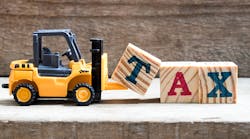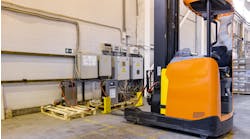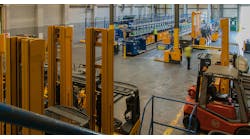Four Ways to Keep Warehouse Property Taxes from Impacting Your Bottom Line
Property taxes can account for 30% to 50% of operating costs for some warehouse facilities. For an industry that focuses on reducing cost and improving efficiency, property taxes are often an overlooked piece to reducing expenses.
Property taxes may simply be seen as the cost of doing business, but they don’t have to be. Owners can often get them reduced through an appeal if they take the right steps.
Below are four ways to make sure property taxes don’t significantly impact your facility’s bottom line.
1. Know Your Local Regulations
Property taxes vary depending on individual jurisdictions and counties, so understanding the local regulations for your jurisdiction is key. Whatever county or state your facility is located in, the information you need about property tax deadlines and appeals can be found on your local government’s website or at your local assessor’s office. It is publicly available information, so before doing anything regarding property taxes, research what laws your location is subject to and the types of taxes you will owe.
For example, when it comes to manufacturing and warehouse facilities, 38 states collect both real estate taxes (based on the value of the land and building) and business personal property taxes (based on the assets inside a facility, like equipment and machinery). The remaining 12 states don’t assess business personal property, ultimately impacting the way an appeal is done and the information needed to conduct the appeal.
When presenting a case for a property tax appeal, information is key; the more in-depth knowledge and evidence presented during the appeals process, the better.
2. Research Local Market Data
Along with knowing local laws and regulations, familiarity and knowledge of the local labor market, real estate and various industry trends are great tools for crafting a successful property tax appeal.
Read trade publications, local newspapers and real estate magazines to stay up-to-date on the trends that can help your appeal because information like layoffs or bankruptcies in your industry can provide evidence for the reduction of property taxes.
3. Maintain Detailed Records
Because property taxes for warehousing and manufacturing facilities oftentimes include the various equipment and machinery inside the building, maintaining a detailed record book is paramount. In addition, technological advancements or new equipment will have an impact on how a property is assessed.
Equipment that has been in use for a long time or is in need of repairs might have technically fully depreciated in value for accounting purposes, but when it comes to property taxes, all equipment has some level of residual value. Property taxes are based on the assessed value the local assessor gives to your facility and the equipment inside of it, so the assessor may think something is worth a higher value than what it really is or vice versa, which is why accurate records are so important.
To maintain up-to-date, detailed records, consult your facility engineers and employees as they are most likely to know exactly how various equipment is being used and what is outdated or needs repair.
4. Keep a Calendar of Important Deadlines
Just like each county or state may have different property tax laws and regulations, deadlines to file an appeal vary, too. Each state has different formal and informal appeal deadlines, so check the local office for those dates and mark them on a calendar.
Some examples of the different types of deadlines include assessment deadlines, which is when the local assessor comes to a property and assigns a specific value to it. There are also compliance deadlines, where an owner will need to submit information on inventory and any additions or upgrades to their property. Lastly, there is the appeal deadline, which is the date by which an appeal needs to be filed with the local jurisdiction. The appeal deadline is typically a set amount of days after a property owner receives their assessment notice.
Seth Krchmar is managing consultant at Paradigm Tax Group, a property tax consulting firm.



